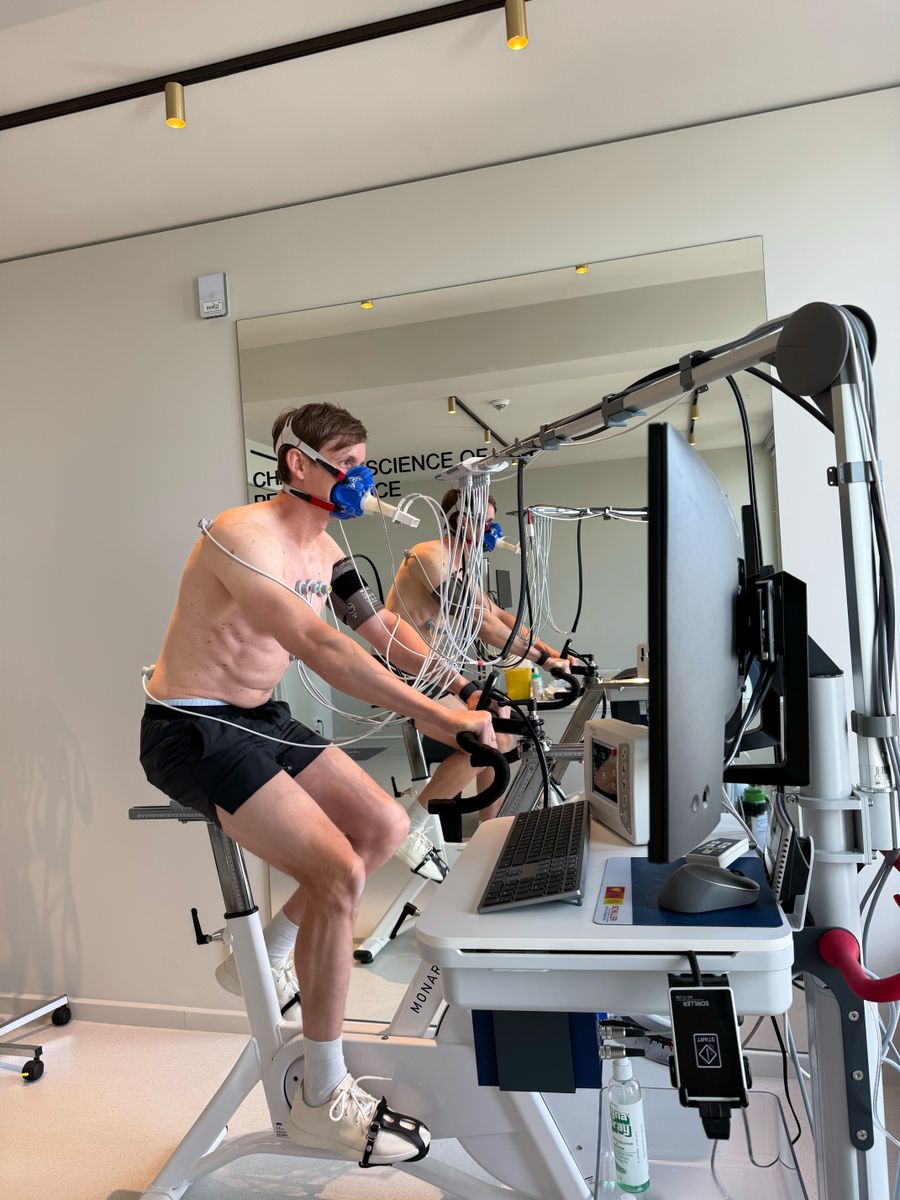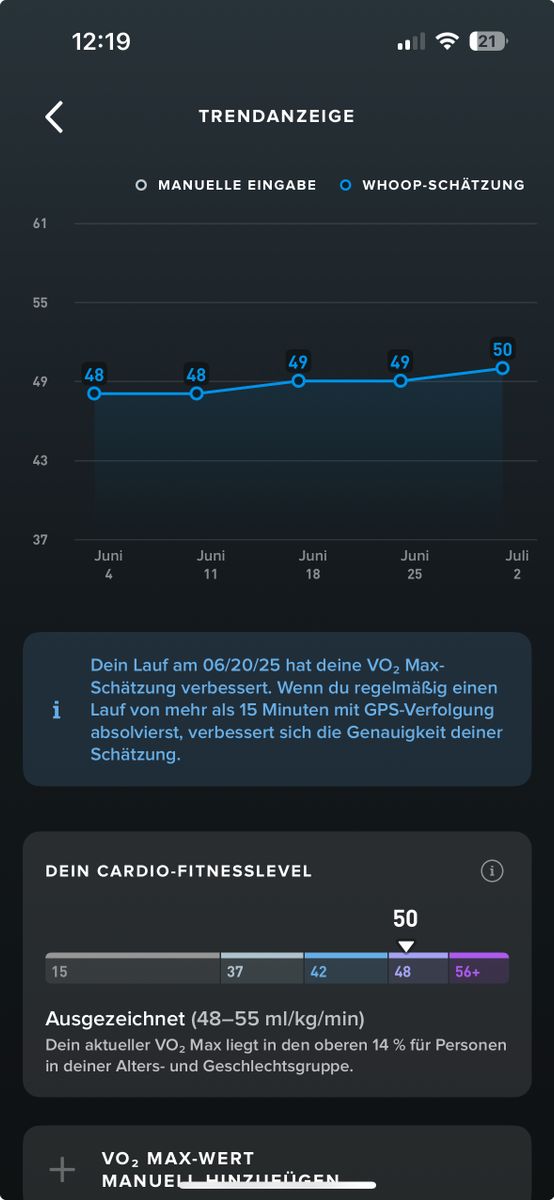Community Discussions
How accurate is VO₂max tracking from wearables like WHOOP, Oura, and Garmin compared to lab tests (lactate threshold or spiroergometry)?
As my current fitness bottleneck is VO₂max, I’ve been adjusting my training to improve it.
To track progress accurately, I wanted to understand how reliable the VO₂max estimate from my WHOOP 4.0 is compared to a gold-standard lab test (spirometry with lactate threshold measurement). Here’s what I found:
My Results:
• WHOOP 4.0 estimate: 50 mL/kg/min
• Lab spiroergometry (bike ergometer): 45 mL/kg/min
Difference:
WHOOP appears to overestimate by about 10–15%, which aligns with what some studies and anecdotal reports suggest for wearables. That said, my WHOOP 5.0 just arrived, and I’ll recheck the values using the next-generation sensor hardware to see if there are any improvements or adjustments.
Important note:
My doctor mentioned that my true VO₂max might indeed be closer to 50 mL/kg/min, since the test was done on a bike ergometer. As I’m not a trained cyclist, my leg endurance may have limited the result.
Pro tip:
If you want the most accurate VO₂max reading, look for a spiro lab that offers testing on a treadmill or rowing ergometer in addition to a bike. These modalities engage more muscle groups, potentially leading to a higher and more holistic VO₂max reading, especially for runners, rowers, or hybrid athletes.
What about you?
Have you done a VO₂max lab test? How did it compare to your wearable (WHOOP, Garmin, Oura, Apple Watch, etc.)?
Would love to hear your experiences, especially if you tested on different machines or with different protocols.
@callum-parker
@maximilian
@manlio-lo-giudice
@seb-c
@brgmn
@ori-raz
@heiko-bartlog
@niko-hems
@christian-gschwend
@amon-lang
@jonathan-chung-yee
@ronald-tenholte
@felix-lorenzen
@tim-seithe
@john-graham-harper
As my current fitness bottleneck is VO₂max, I’ve been adjusting my training to improve it.
To track progress accurately, I wanted to understand how reliable the VO₂max estimate from my WHOOP 4.0 is compared to a gold-standard lab test (spirometry with lactate threshold measurement). Here’s what I found:
My Results:
• WHOOP 4.0 estimate: 50 mL/kg/min
• Lab spiroergometry (bike ergometer): 45 mL/kg/min
Difference:
WHOOP appears to overestimate by about 10–15%, which aligns with what some studies and anecdotal reports suggest for wearables. That said, my WHOOP 5.0 just arrived, and I’ll recheck the values using the next-generation sensor hardware to see if there are any improvements or adjustments.
Important note:
My doctor mentioned that my true VO₂max might indeed be closer to 50 mL/kg/min, since the test was done on a bike ergometer. As I’m not a trained cyclist, my leg endurance may have limited the result.
Pro tip:
If you want the most accurate VO₂max reading, look for a spiro lab that offers testing on a treadmill or rowing ergometer in addition to a bike. These modalities engage more muscle groups, potentially leading to a higher and more holistic VO₂max reading, especially for runners, rowers, or hybrid athletes.
What about you?
Have you done a VO₂max lab test? How did it compare to your wearable (WHOOP, Garmin, Oura, Apple Watch, etc.)?
Would love to hear your experiences, especially if you tested on different machines or with different protocols.
@callum-parker
@maximilian
@manlio-lo-giudice
@seb-c
@brgmn
@ori-raz
@heiko-bartlog
@niko-hems
@christian-gschwend
@amon-lang
@jonathan-chung-yee
@ronald-tenholte
@felix-lorenzen
@tim-seithe
@john-graham-harper
Please sign in to post a reply.


